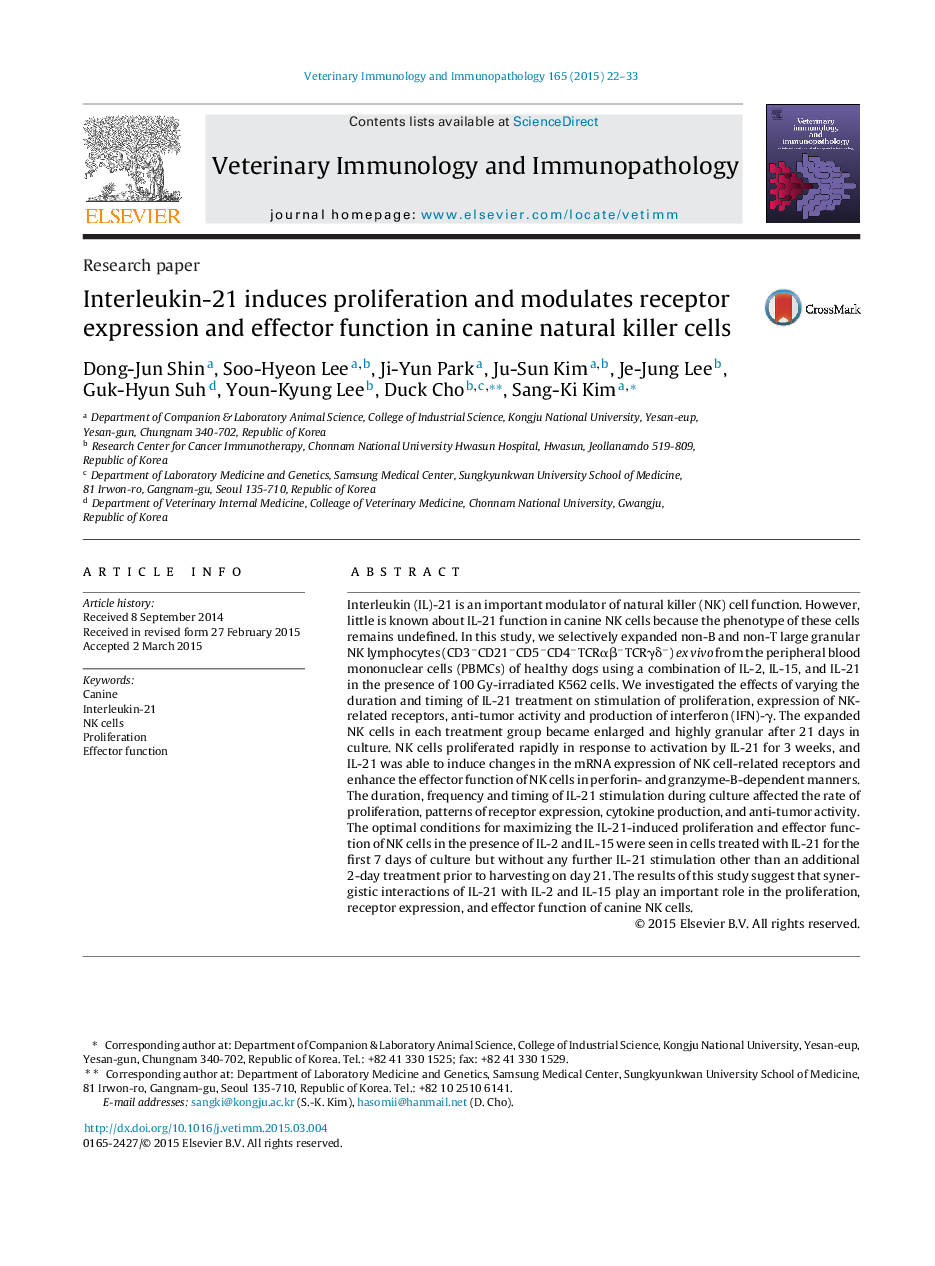| Article ID | Journal | Published Year | Pages | File Type |
|---|---|---|---|---|
| 2461374 | Veterinary Immunology and Immunopathology | 2015 | 12 Pages |
Interleukin (IL)-21 is an important modulator of natural killer (NK) cell function. However, little is known about IL-21 function in canine NK cells because the phenotype of these cells remains undefined. In this study, we selectively expanded non-B and non-T large granular NK lymphocytes (CD3−CD21−CD5−CD4−TCRαβ−TCRγδ−) ex vivo from the peripheral blood mononuclear cells (PBMCs) of healthy dogs using a combination of IL-2, IL-15, and IL-21 in the presence of 100 Gy-irradiated K562 cells. We investigated the effects of varying the duration and timing of IL-21 treatment on stimulation of proliferation, expression of NK-related receptors, anti-tumor activity and production of interferon (IFN)-γ. The expanded NK cells in each treatment group became enlarged and highly granular after 21 days in culture. NK cells proliferated rapidly in response to activation by IL-21 for 3 weeks, and IL-21 was able to induce changes in the mRNA expression of NK cell-related receptors and enhance the effector function of NK cells in perforin- and granzyme-B-dependent manners. The duration, frequency and timing of IL-21 stimulation during culture affected the rate of proliferation, patterns of receptor expression, cytokine production, and anti-tumor activity. The optimal conditions for maximizing the IL-21-induced proliferation and effector function of NK cells in the presence of IL-2 and IL-15 were seen in cells treated with IL-21 for the first 7 days of culture but without any further IL-21 stimulation other than an additional 2-day treatment prior to harvesting on day 21. The results of this study suggest that synergistic interactions of IL-21 with IL-2 and IL-15 play an important role in the proliferation, receptor expression, and effector function of canine NK cells.
